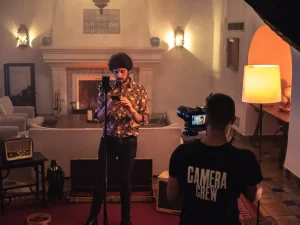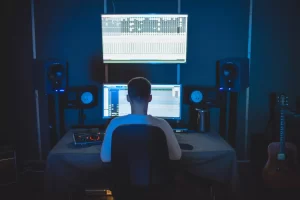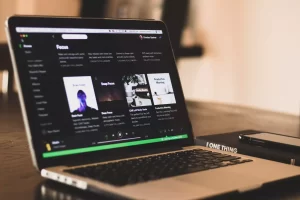BBC Introducing Lancashire’s Daniel Bentley looks into the murky world of “pay-to-play”gigs.
Young artists wanting to improve their profile and get more and better gigs under their belts are often drawn into pay-to-play schemes.
And that is exactly what is involved. The artists themselves must pay the promoter up front in some way to play the gig.
It can take many forms with some being more obvious than others.
A straight up pay-to-play may happen when a big touring band comes to town. Knowing the support slot will be a coveted one, a promoter may charge a sizeable fee for an up and coming band to play it.
This is all sold with the language of a sales shark: “It’ll increase your profile!” “I’ll book you in the future!”
A more covert form of pay-to-play and one many artists fall for is a ticket deal.
This is when a promoter agrees to put an artist on the bill if they buy a book of tickets up front. This may be 20 tickets, it may 50 or more. The promoter then receives a straight up front payment from the band.
Financial loss
The artists are expected to heavily promote the gigs themselves and sell their own tickets, usually to classmates, family and friends. If they can’t sell all their tickets, they can end up with a considerable financial loss.
Guy Garvey, lead singer of Elbow, spoke out against pay-to-play gigs at last year’s In The City music conference, held in Manchester.
He said: “There needs to be something really strong in place if a promoter is found to be ripping off young bands. It’s really, really unfair. It’s basically playing on the hopes and dreams of people who are at the very first hurdle of their musical careers.”
One man who has experienced gigging on both sides of the fence is Samuel Nicholls, aka Whiskas, guitarist of Forward Russia.
In his late teens and early twenties Whiskas was a promoter as well as a musician and has this advice for young artists tempted by play-to-play deals: “There’s no need to do it. Pay-to-play deals never make sense as you’re only ever going to play to your mates and family.
“My advice would be to put on your own gig. Buddy up with some other local bands, book a room in a pub, print some posters and do it yourself.
“You’re risking your own money by doing it but probably no more than under a pay-to-play. If you do well you’ll make more money and get more of the right sorts of people in to your gigs.”
One source of information is the website of the Musicians’ Union which offers free advice to artists questioning the ethics of a promoter they are dealing with. They can also pay to join for additional benefits such as insurance and legal advice.
(Taken from BBC)



